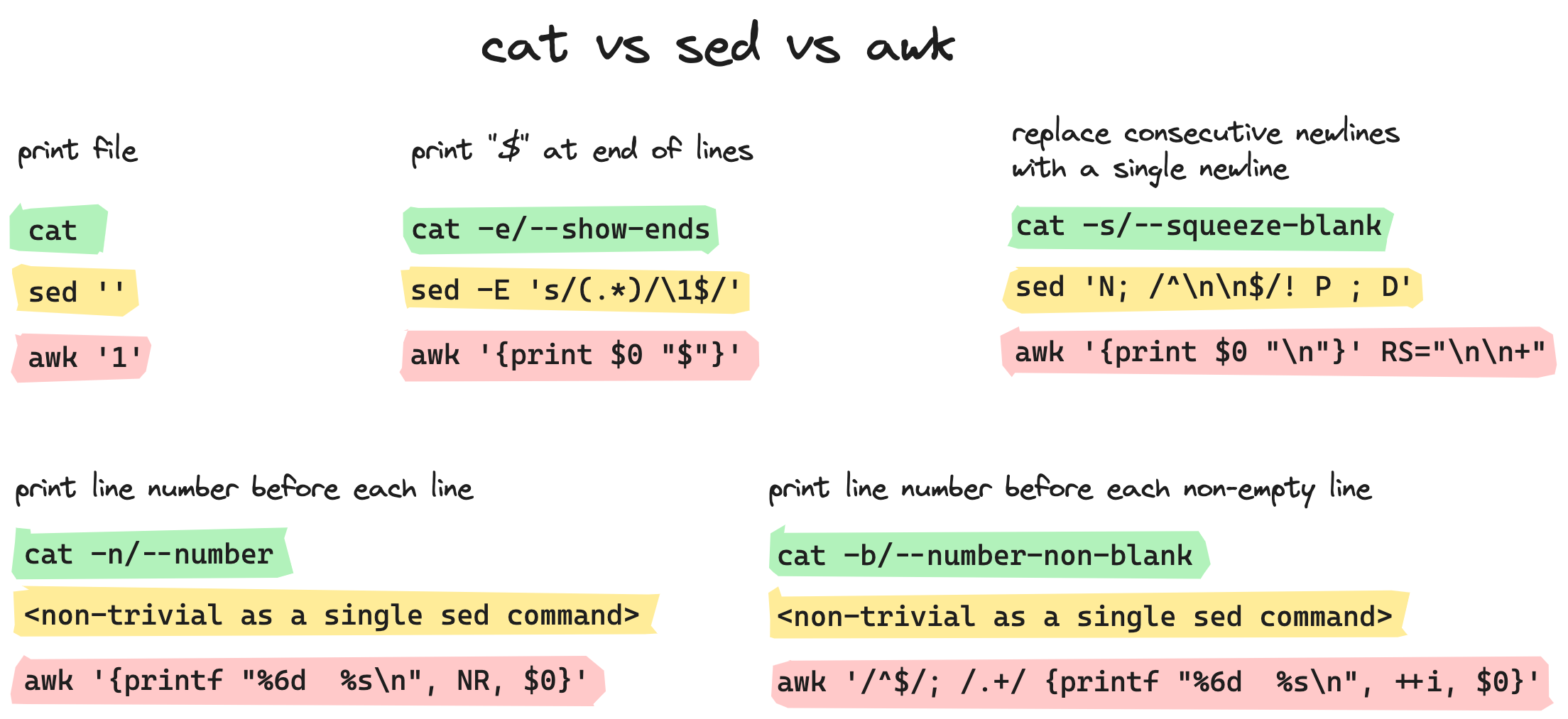I feel like you can't compare these tools without talking about cut. I personally never use awk, but cut and other coreutils can be used together to achieve much of the same
Linux
From Wikipedia, the free encyclopedia
Linux is a family of open source Unix-like operating systems based on the Linux kernel, an operating system kernel first released on September 17, 1991 by Linus Torvalds. Linux is typically packaged in a Linux distribution (or distro for short).
Distributions include the Linux kernel and supporting system software and libraries, many of which are provided by the GNU Project. Many Linux distributions use the word "Linux" in their name, but the Free Software Foundation uses the name GNU/Linux to emphasize the importance of GNU software, causing some controversy.
Rules
- Posts must be relevant to operating systems running the Linux kernel. GNU/Linux or otherwise.
- No misinformation
- No NSFW content
- No hate speech, bigotry, etc
Related Communities
Community icon by Alpár-Etele Méder, licensed under CC BY 3.0
Okay, so cat is all I need, right?
...right?
love cat -n, when working with csv files I often use a command like this to figure out which column I need:
head -n1 file.csv | sed 's/,/\n/g' | cat -n
Sweet
for me it's grep but i'm amazed how many searching tools there are on Linux. sed, grep, ripgrep, cat, find, walk, sor, locate, awk, etc.
cat
while read -r l; do echo "$l"; done <
cat -e
while read -r l; do echo "$l"$; done <
cat -n
n=0; while read -r l; do n="$((n+1))"; printf '%5d %s\n' "$n" "$l"; done <
cat -b
n=0; while read -r l; do [ -n "$l" ] && n="$((n+1))" && printf '%5d %s' "$n" "$l"; echo; done <
What is it you want to do?
just trying to get a good mental model of when it's reasonable to use tools like awk instead of simpler unix tools. also further confirming that sed is almost never the best tool except for substitutions.
Sed and awk have a lot of overlap. Another thing to consider is that neither might be the right choice if you are inside a bash script since spawning a new process in a tight loop can be very expensive and bash's built-in regex operations can have much better performance in those situations.
That's a good point. If I need something like a bash script I tend to stick to bash features as much as possible.
Ok, I would say... cat is mostly used for output of files, and concatenating files. sed and awk are good at reshaping the output of files or piped std input. They both require some time to learn, but it is worth going back to them.
I pretty much always use these commands unless I need regex or something. I think it's a lot more maintainable by other people since awk and sed have their own unique syntax.
Thanks for the info!
